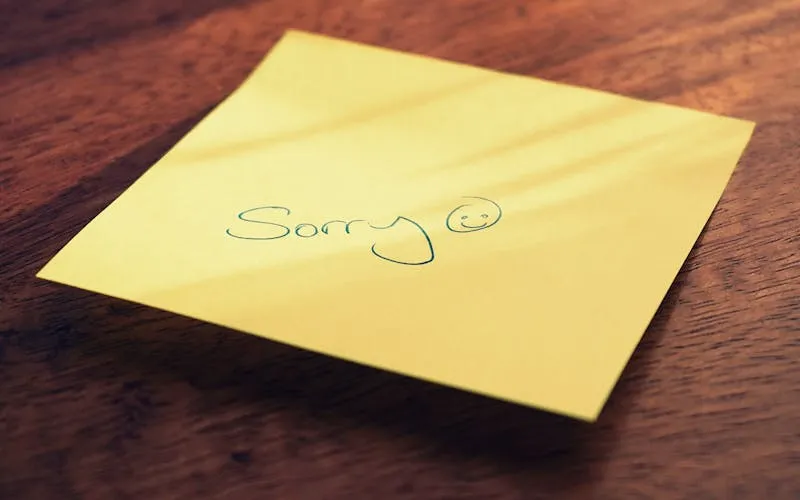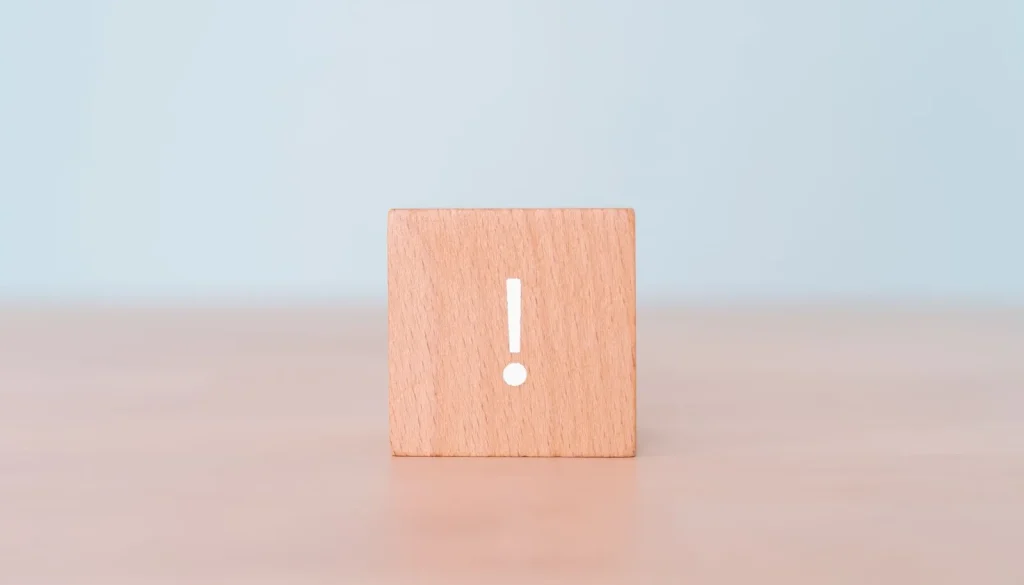What does the Japanese word "Sumimasen" mean? Explanation of business usage and example sentences

日本人は、謝るときや、店員さんを呼ぶとき、お願いするときなど色々なシーンで「すみません(sumimasen)」や「どうもすみません(doumo sumimasen)」を使います。
日本語を勉強中の外国人にとって、「どうして今謝ったの?」「今のは、ありがとうじゃないの?」と不思議に思うことも多いのではないでしょうか?
そこで、今回は「すみません」の意味や使い方、発音を詳しく解説していきます。
記事の最後には、例文を用いて「すみません」の使い方を実際に学んでいきます。「すみません」をマスターして自然な日本語を話せるようになりましょう!
▼Goandup Picks Click here for recommended articles!
- Required before studying abroad! Goandup Nihongo+, an online Japanese language learning service
- This page introduces services for foreigners who wish to study in Japan or improve their Japanese language skills to learn Japanese online.
- Goandup Salon" community for foreigners living in Japan
- We introduce an online community where foreigners living in Japan can exchange information and interact with each other to support their life in Japan.
- Goandup Study" supports foreigners who want to study in Japan.
- This section introduces study abroad support services that provide comprehensive support to foreigners who wish to study in Japan, from preparation for study abroad to living in Japan.
- Where can I buy a prepaid SIM in Japan? Recommended SIM cards for foreigners are also introduced.
- How to purchase a prepaid SIM and suitable SIM cards for foreigners.
- The Complete Guide to Pocket Wi-Fi in Japan for Foreigners!
- We introduce how to select and recommend pocket Wi-Fi products that can be used conveniently in Japan.
- The Complete Guide to Finding a Job in Japan! Finding a job, changing jobs, and part-time work for foreigners
- This site provides foreigners who want to work in Japan with comprehensive information on how to find a job, recommended job sites, and other information necessary to find a job.
「すみません」の3つの意味

日本人がよく使う「すみません(sumimasen)」には、大きく分けて3つの意味があります。
- ごめんなさい(謝罪)
- ありがとう(感謝)
- ちょっといいですか(呼びかけ)
すみませんの意味① ごめんなさい(謝罪)
「すみません」を直訳すると「ごめんなさい」という意味になります。
道で誰かにぶつかってしまったときや、待ち合わせに遅刻してしまったときの「すみません」は謝罪の意味です。
!注意!
すみませんは、小さな間違いや失敗のときにのみ使います。
重大な間違いや失敗をしてしまったときは、「すみません」ではなく「申し訳ございません」を使いましょう。
すみませんの意味② ありがとう(感謝)
「すみません」という言葉には「ありがとう」という意味もあります。
落とし物を拾ってくれたときや、お土産をもらったときの「すみません」には、「ありがとう」という感謝の気持ちが込められています。
すみませんの意味③ ちょっといいですか(呼びかけ)
「すみません」は、人を呼び止めるときにつかう「あのう」と同じように使うことができます。
道を尋ねたいときや、スーパーで売り物の場所を聞きたいとき、レストランで注文したいときになどは、まず「すみません」と呼びかけてから話します。
Other
その他にも、「すみません」は、注目を集めたいときや、お願いするときなどにも使います。
特に、お願いするときは「すみません、〇〇してくれませんか?」というように、お願いの前に「すみません」を入れるだけでも良い印象になります。
日本語「すみません」に当たる英語表現

「すみません」はシーンごとに英訳が変わります。
- I’m sorry.
- Thank you.
- Excuse me.
- Can you (do) 〜 ?
【謝罪】I’m sorry.
すみませんは、謝罪のなかでも軽い(深刻ではない)謝罪が当てはまります。
「すみません」を直訳すると「I’m sorry.」ですが、それ以外にも、「Pardon me?」「I beg your pardon.」「My bad.」と英訳することもできます。
【感謝】Thank you.
すみませんには、感謝の意味があるため「Thank you.」と英訳することができます。
その他にも、「Thank you for~」「Thanks! 」などと英訳できます。
【呼びかけ】Excuse me.
店員さんに話しかけるときのすみませんは、「Excuse me.」と英訳できます。
【お願い】Can you (do) 〜 ?
「すみません、〇〇してもらえますか?」のように、お願いするときは「Can you (do) 〜 ?」と英訳できます。
「すみません」「すいません」の違いとビジネスでの注意点

日本人が「すいません(suimasen)」と言っているのを聞いたことはありませんか?「すみません」が発音しやすいように変化したのが、「すいません(suimasen)」です。「すいません」の他にも、地域によって「すんません(sunmasen)」などの表現も存在します。
いずれも、話し言葉にのみ使われる口語なので、文章やメールなどに使う場合は「すみません」を使用しましょう。また、「すいません」は「すみません」よりもフランクな印象があります。正しい言葉遣いは「すみません(sumimasen)」です。
日本語を勉強中の外国人の方は、意識的に「すみません」を使用しましょう。特に、謝罪のときは「すいません」ではなく「すみません」を使ったほうが印象が良いです。
ただし、ビジネスシーンでは「すみません」を使わず、「申し訳ございません」で謝罪し、「ありがとうございます」で感謝を示し、「恐れ入りますが」でお願いをするなど、場面に応じた適切な敬語を使うすることが求められます。
【意味別】「すみません」の使い方と例文

それでは、実際に「すみません」の使い方を学んでいきましょう。
1. 謝罪の「すみません」
scene1 道で人にぶつかってしまったとき
| すみません。大丈夫ですか?(sumimasen daijyoubu desuka?) 英訳:I’m sorry. Are you all right? ⇒大丈夫ですよ。(daijyoubu desuyo.) 英訳:I’m all right. |
scene2 電話に出られなかったとき
| 電話に出られなくてすみません。(dennwani derarenakute sumimasen.) 英訳:I’m sorry I didn’t answer your call. |
scene3 待ち合わせに遅刻したとき
| 遅れてしまい、どうもすみません。(okuretesimai doumosumimasen.) 英訳:I’m sorry for being late. |
2. 感謝の「すみません」
scene1 お土産をもらったとき
| これは北海道のお土産です。どうぞ。(korewa hokkaido no omiyagedesu. douzo.) 英訳:This is a little something I got for you from Hokkaido. ⇒わー!どうもすみません。うれしいです。(wa-! doumosumimasen. ureshiidesu.) 英訳:Thank you. I am happy. |
scene2 落とし物を拾ってもらったとき
| これ落しましたか?(kore otosimasitaka?) 英訳:Did you drop this? ⇒あ、すみません。(a, sumimasen.) 英訳:Thank you. |
3. 呼びかけの「すみません」
scene1 レストランで店員さんを呼ぶとき
| すみません。(sumimasen.) 英訳:Excuse me. |
scene2 道を尋ねる
| すみませんが、図書館への道を教えていただけませんか?(sumimasenga,tosyokaneno michinoriwo osiete itadakemasenka?) 英訳:Excuse me, could you tell me the way to the library? |
scene3 満員電車などで道をあけてもらいたいとき
| すみません、通してください。(sumimasen,toositekudasai.) 英訳:Excuse me. |
For those of you who want to further your studies at a Japanese language school

The Japanese language attracts attention from around the world for its rich expressiveness and profound culture. From movies, music, and literature to everyday conversation, learning Japanese is not only a way to acquire a new language, but also a gateway to a deeper cultural understanding and a broader perspective.
For those of you who want to study Japanese more seriously, enter higher education in Japan, or find a job in Japan, taking your Japanese language skills to the next level is the first step in turning your dreams into reality. There are approximately 700 Japanese language schools in Japan with various characteristics, but it is not easy to select the best school for you.
Therefore, we will do our best to help you choose the perfect Japanese language school to realize your goals and dreams! If you have any questions or concerns about Japanese language schools, please feel free to contact us using the inquiry form below.
We will provide you with the best support to meet your Japanese language learning goals. We hope that our support will make your Japanese language study more fulfilling and fruitful.
summary
今回は、「すみません」の意味や使い方を詳しく解説しました。
日本人が1日に何度も言う「すみません」には、ごめんなさい以外にも、感謝や呼びかけなど色々な意味があります。
外国人には少しややこしく感じるかもしれませんが、日本に慣れてくると「すみません」が自然と出てくるはずです。
「すみません」をしっかりマスターして、自然な日本語を話せるようになりましょう!






